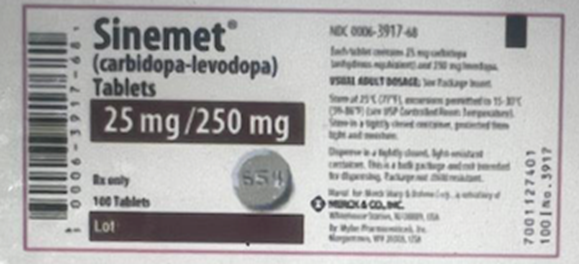The nurse notes old and new ecchymotic areas on an older adult client's arms and buttocks upon admission. The client tells the nurse in confidence that her family members frequently hit her. Which statement should the nurse use in response?
‘’I have a legal obligation to report this type of abuse."
"Let's get these treated, and I will maintain confidence."
"Let's talk about ways to prevent someone from hitting you"
"If this happens again, you must call the emergency department."
The Correct Answer is A
A) "I have a legal obligation to report this type of abuse."
The nurse has a legal and ethical obligation to report suspected abuse or neglect, especially in vulnerable populations such as older adults. In many jurisdictions, mandatory reporting laws require healthcare professionals to report suspected abuse to the appropriate authorities (e.g., Adult Protective Services, law enforcement) to ensure the safety of the client.
B) "Let's get these treated, and I will maintain confidence."
While it is essential to provide care for the physical injuries, the nurse cannot promise to maintain confidence in cases of suspected abuse. Confidentiality can be breached in situations where a legal obligation to report abuse exists. Failing to report suspected abuse could jeopardize the client's safety and place the nurse at risk of legal consequences.
C) "Let's talk about ways to prevent someone from hitting you."
This might seem compassionate, but it does not address the legal obligation to report the abuse. The priority should be to ensure the client's safety by reporting the situation to the appropriate authorities. Focusing on preventative measures without reporting the abuse first may imply that the responsibility lies with the client to prevent the abuse, rather than ensuring that the perpetrator is held accountable and the client is protected from harm.
D) "If this happens again, you must call the emergency department."
While advising the client to call the emergency department is a reasonable step in cases of immediate harm, it does not address the current abuse or the need for immediate intervention. The nurse's primary responsibility is to report the abuse to the proper authorities and ensure the client's safety.
Nursing Test Bank
Naxlex Comprehensive Predictor Exams
Related Questions
Correct Answer is A
Explanation
A) Spironolactone:
Spironolactone is a potassium-sparing diuretic commonly used in the treatment of heart failure. Unlike other diuretics, spironolactone works by antagonizing aldosterone, a hormone that promotes sodium and water retention and potassium excretion. By blocking aldosterone's action, spironolactone prevents the kidneys from excreting potassium, thus increasing potassium levels in the blood (hyperkalemia). Additionally, spironolactone can lead to hyponatremia (low sodium levels), as it also causes the kidneys to retain sodium and water, diluting sodium levels in the blood.
B) Furosemide:
Furosemide, a loop diuretic, is typically used in heart failure to remove excess fluid. It works by inhibiting the reabsorption of sodium, chloride, and potassium in the loop of Henle, which increases urine output. While furosemide can cause hypokalemia (low potassium levels) due to the increased excretion of potassium, it does not typically cause hyperkalemia.
C) Hydrochlorothiazide:
Hydrochlorothiazide is a thiazide diuretic, which works by inhibiting sodium and chloride reabsorption in the distal convoluted tubule of the kidney, leading to increased urine production. Thiazide diuretics can cause hypokalemia (low potassium levels) and hyponatremia (low sodium levels) due to the enhanced excretion of both electrolytes.
D) Metolazone:
Metolazone is also a thiazide-like diuretic that works similarly to hydrochlorothiazide. It can cause hypokalemia and hyponatremia, but like hydrochlorothiazide, it does not typically cause hyperkalemia. Metolazone is more potent than hydrochlorothiazide but still does not carry the risk of hyperkalemia like spironolactone does.
Correct Answer is C
Explanation
A) Normal saline 1 liter to client who is dehydrated:
Administering normal saline to a dehydrated client is an important task, as it helps to restore fluid balance and improve circulatory volume. However, while rehydration is critical, it is not an immediate, life-threatening priority compared to other interventions. The nurse should begin this infusion after addressing more urgent needs such as severe chest pain, which could indicate a cardiac emergency.
B) Morphine sulfate 4mg intravenously (IV) now for the client experiencing incisional pain:
Morphine is a potent analgesic, and relieving pain for postoperative patients is essential for comfort and recovery. However, incisional pain, although important to address, is not life-threatening in this scenario. The client with chest pain should be prioritized because chest pain could indicate a myocardial infarction (MI) or other serious cardiac event that requires immediate intervention.
C) Nitroglycerin (Nitrostat) 0.4 mg sublingually (SL) stat for the client experiencing crushing chest pain:
Crushing chest pain is a classic symptom of acute myocardial infarction (MI), a life-threatening condition that requires immediate intervention. Nitroglycerin is used to relieve chest pain associated with angina or MI by dilating the coronary arteries and improving blood flow to the heart. In this case, chest pain is the most critical symptom, and immediate treatment is necessary to reduce the risk of further cardiac damage or complications.
D) Lorazepam 2 mg IV now for the client who is anxious and restless:
While lorazepam is an effective medication for anxiety and restlessness, it is not the most urgent medication in this case. The client’s anxiety should be addressed, but it does not pose an immediate threat to life. Anxiety can generally be managed after more acute, life-threatening conditions (such as chest pain) are stabilized.

Whether you are a student looking to ace your exams or a practicing nurse seeking to enhance your expertise , our nursing education contents will empower you with the confidence and competence to make a difference in the lives of patients and become a respected leader in the healthcare field.
Visit Naxlex, invest in your future and unlock endless possibilities with our unparalleled nursing education contents today
Report Wrong Answer on the Current Question
Do you disagree with the answer? If yes, what is your expected answer? Explain.
Kindly be descriptive with the issue you are facing.
